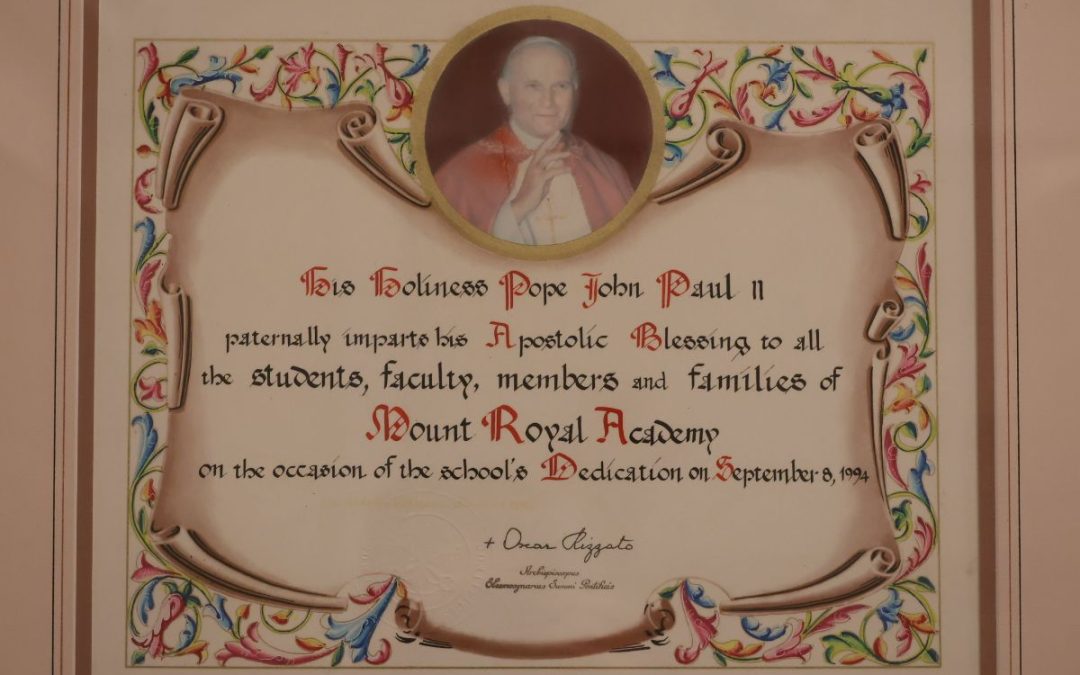
As I have mentioned elsewhere in this newsletter, the sixth grade class and I are studying the Bible Timeline and we have reached the Messianic Fulfillment era with the gospel of Luke. Two great parables appear in Luke – the Good Samaritan and the Prodigal Son. Both stories are ubiquitous, well-known parables, perhaps one could say they are even “worn out.” We have heard them so often, we become bored with them, inattentive to the details, and maybe even the lesson they provide.
To avoid this spiritual lethargy, I have encouraged the students to try to read them with fresh eyes; a different perspective. In the Prodigal Son, they have been properly appalled at the younger son who demands his inheritance while his father is still alive! In effect, he is saying, “Dad, hurry up and die already.” Then he takes the money and wastes it on sinful living. To highlight the depth of the younger son’s fall from grace, I point them to the fact that Jews viewed pigs as unclean animals, and here is the younger son, taking care of pigs. He has greatly debased himself by sin. However, once he “comes to his senses” he returns to his father’s house, prepared to assume the role of unworthy servant. Instead the father “runs out to greet him.” , clothes him in fine clothing, feeds him with a fatted calf, and restores him to sonship.
Of course, this parable is supposed to remind us of the unfathomable love and mercy God holds for each of us. It is actually a beautiful parable; one of my favorites. And so appropriate for Lent, as we, through our sacrifices, strive to return to our heavenly father and become the sons and daughters he created us to be.
In an attempt to discover a new perspective for this parable, I looked up the definition of prodigal. It means wastefully extravagant. Sure, the son was “wastefully extravagant” in his sinful living and reckless spending, but what about the father? Perhaps not wasteful, but he was most definitely extravagant – in mercy, forgiveness, generosity, and love. Just as our Father in heaven is extravagant in his dealings with us, his children, and how blessed are we by His prodigality!
Similarly, in his thought provoking article, Fr. Brian Graebe points out that it is Jesus who is the truly prodigal son. He leaves his father’s house “living among the filth of sin with tax collectors and prostitutes, and spends Himself completely, giving away all He has – His teachings and miracles, His own Mother, His very Body and Blood. And having taken our sins upon Himself, He then rises up and returns to the Father’s house, where He is robed in glory, never to depart again.”
How’s that for a different perspective on this “worn out” parable!?
Fr. Graebe goes on: “And isn’t that wastefulness a hallmark of Our Lord’s ministry? He didn’t make decent wine; He made the best wine, and lots of it. He didn’t feed the thousands just enough; there was plenty left over. He didn’t consent to being anointed sufficiently, but praised the lavish wastefulness – equal to an entire year’s salary – that was poured on Him. And why? Because excess is a hallmark of love.”
Excess is a hallmark of love.
This is a sentiment to ponder for these remaining days of Lent.
How can we live this excess of love in our daily lives? In our work? At school? With our families? Instead of asking ourselves, “How much is enough?” Can we change that question to “What more?”
As I read this article I could feel discomfort creeping into my heart, stretching me, moving me beyond my comfort zone. How much does God really expect of us?
Fr. Graebe’s answer provides both challenge and consolation:
“Yes, He demands everything, this jealous, Prodigal lover. Not just the time we consciously give to Him in our prayer; He demands our recreation, our conversations, our laughter and sorrows, our holy hours and our happy hours. Not to take them away, but to elevate them and make them His own, to share them with us and receive glory through them. He wants all of this so that He can fill our souls completely, and enlarge them to receive even more, so that our souls too might magnify the Lord.”
May our extravagant Lord bless you all with a fruitful Lent, a holy Triduum, and a joyous Easter.– Mrs. Lisa Sweet, Academic Dean



